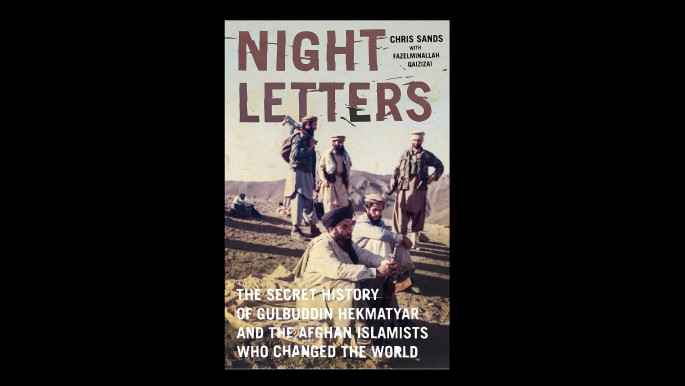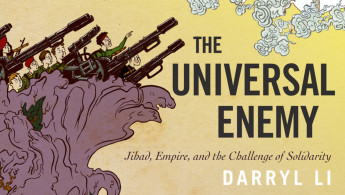Radicalisation, Islamism and transnational politics: The Universal Enemy
"This is not due to an implacable hostility to humanity on his [the jihadi] part, but because he has been declared as such by those whose right to speak in the name of the universal is often taken for granted."
Overturning this presumption and seeing the jihadi project as another form of universalism is the audacious argument by Li in his new book The Universal Enemy: Jihad, Empire, and the Challenge of Solidarity.
No figure in contemporary politics is treated with utter contempt quite like the transnational jihadist. While many are rightfully appalled by the violence unleashed by some jihadis – from terrorist attacks to the genocidal actions of the so-called Islamic State group against the Yazidi people – it is easy to forget that jihadism is a much broader and diverse than this, and more importantly jihadis more often than not see themselves as idealists, utopianists and universalists.
This book takes jihad as a universalist project and aims to probe into how these 'other universalist' deal with challenges, contradictions and the wider world.
 |
| Read more from The New Arab's Book Club: Night Letters: Gulbuddin Hekmatyar and the Afghan Islamists who Changed the World |
Li chose to focus his research on jihadi networks in Bosnia, where he has done years of field research, which included extensive interviews with former jihadi fighters.
Bosnia is an interesting choice on a number of levels.
While many in the West recognise that what happened in Bosnia was horrifying, the horror is somewhat lightened by the fact that those who committed war crimes and genocide during the 1991-1995 Bosnian war, were put on trial for their crimes.
The trials seem to confirm the moral validity of Western International Liberalism and while there is truth to this, if anyone pays a visit to Bosnia today, in my own opinion, the only conclusion one can draw is the genocide perpetrated by Bosnian Serb forces against Bosnian Muslims succeeded.
While some leaders of the Bosnian Serbs were tried, their handiwork was legitimised by the very same Western International Liberalism that held them to account for their crimes.
Post-war political order and power was assigned along the arbitrary lines drawn up by the Bosnian Serb leadership, arguably what happened in Bosnia represented the failure of this universalism.
This point is very clearly in the mind of Li, but he goes further than this, he treats Bosnia as a site of overlapping universalisms, from Western Liberalism, jihadi transnationalism to Yugoslav communist non-alignmentism, a portion of the book is dedicated to exploring the interactions between these different ideals.
The book makes no value judgement of jihadism, Li as a non-Muslim American researcher of East Asian heritage, never divulges whether he thinks jihadism is a good thing or a bad thing.
His multiple identities is noted during the study as he writes about the different reactions he gets from Bosnians depending on whether they identify him as East Asian or American.
This is not incidental to the broader study, as Li charts the changing fortunes of foreign jihadis, many of whom settled in Bosnia, over the decades.
Depending on time, place and politics the local reaction bounces between hostility, embrace, suspicion and gratitude to foreigners in general and the former foreign fighters in particular.
A key argument Li advances is the notion of the jihadi threat lies in the fact that jihadi violence occurs outside the control of nation states.
Non-state violence is treated as an attack on the state's legitimacy, but as the Bosnian jihad shows, the transnational fighters did not reject the nation state order itself.
Indeed the fighters Li tracks were more than happy to fight alongside regular Bosnian armed forces [during the 1991-1995 war] and while many foreign fighters were less than pleased at what they perceived as the Bosnians lack of religious piety, nonetheless they still saw the Bosnian cause as worth fighting for and even accepted the idea they could not enforce their ways on the local population.
 |
| Read more from The New Arab's Book Club: To The Mountains: My Life in Jihad from Algeria to Afghanistan |
"Abu Abd al-Aziz [leader of the Arabs fighting in Bosnia] maintained that his only mission was to defend his Muslim brethren, and he disclaimed one of the goals most commonly ascribed to foreign jihadists: establishing an Islamic state by force of arms.
"Lest one think this message was designed only to reassure non-Muslims, it was mainly directed at those arguing that Bosnian Muslims were insufficiently pious to merit armed solidarity.
"As Abu Abd al-Aziz retorted in one of the Muslim Brotherhood's leading magazine, 'Will we leave girls to be raped, children to be taken away by Crusaders, and youth to be killed and slaughtered while standing by and simply invoking [the excuse of] 'secularism'? Personally, I believe that a secular Muslim state is much better than a Crusader one."
The issue with Li's work is the relationship of the Bosnian jihad to later jihadis in places like Iraq and Syria is not explored.
If you are looking for a comprehensive overview of transnational jihadism from the 1980s [the Soviet invasion of Afghanistan] to the declaration of the 'IS' caliphate in Mosul in 2014, this is not the work to turn to.
It focuses on the Bosnian experience and other jihads are considered only in terms of how it relates to it.
However that does not mean Li's book is not useful when thinking about jihadism elsewhere, it is an important case study, that gives us the ability to think about transnational jihadism is a new way.
It doesn't just give us the universalism of jihadism, it also tells us the lived reality of it, before, during and many years after the 1991-1995 Bosnian war. Its non-polemical approach to the topic gives us better insight into how those who waged jihad in Bosnian think, without ever excusing their actions nor justifying it.
The Universal Enemy is a critical and welcome addition to our debates around radicalisation, Islamism and transnational politics.
Usman Butt is a multimedia television researcher, filmmaker and writer based in London. Usman read International Relations and Arabic Language at the University of Westminster and completed a Master of Arts in Palestine Studies at the University of Exeter.



